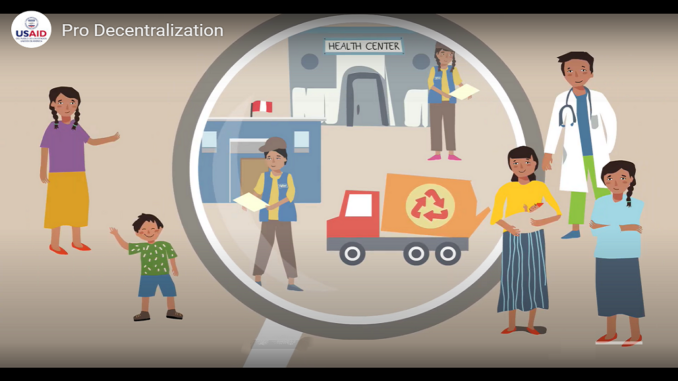
Despite having one of the world’s fastest growing economies in terms of gross domestic product growth rate, Peru historically has been unable to improve its public services at the same rate. This disparity was particularly acute in the country’s remote Amazonian regions, which had little to no improvement in key social indicators, despite the strong economic growth.
Tetra Tech supported multiple phases of the United States Agency for International Development’s (USAID) ProDecentralization (PRODES) project to address local government improvements in Peru. The project’s third iteration launched in 2012 and included five isolated Amazonian regions: San Martin, Ucayali, Amazonas, Loreto, and Madre de Dios. These regions have large indigenous populations whose rates of social well-being are among the lowest in the hemisphere. By working directly with sub-national governments, the project provided technical assistance and training to strengthen government capacity to deliver essential public services and increase government accountability and citizen participation.
Through PRODES III, USAID helped enact reforms to continue strengthening decentralization and sub-national governance and government transparency systems to make service delivery accountable and inclusive of citizens’ inputs and opinions.
The National Assembly of Regional Governments (ANGR) in Peru recognized PRODES III in June 2017 for its contribution to strengthening the decentralization process and continuous support for regional governments in Peru.
The team also promoted and facilitated public policy dialogues in public forums, by bringing together policy makers to interact and engage with each other and enabling citizens to interact with their representatives. PRODES III hosted multiple successful forums across the country, where authorities, electoral candidates, and citizens committed not only to improving public services in education, health, and waste management, but also to continue strengthening participatory decentralized governance.
The project used a Capacity Diagnostic Tool (developed by Tetra Tech), which has been institutionalized as a management tool for 23 of the 25 sub-national governments with which the PRODES project worked. The tool enabled regional and local governments to measure their capacities for planning, producing regulations, implementing and managing public services, and promoting citizen participation, oversight, and control. The tool also was used jointly in partnerships with government institutions and citizens or public service users to diagnose and address barriers to accessing quality services.
PRODES III helped to institutionalize principles of transparency, accountability, participation, and collaboration in decentralized governance across Peru. This involved training, helping governments comply with access to information standards, and adapting and transferring tools and methods to government institutions. The project also provided technical assistance to implement transparency murals in localities without internet access to publish public information about government suppliers, government agendas, and contracting processes in a user-friendly manner.
Learn more about PRODES from the project description on the Tetra Tech website, or by viewing the video below:



